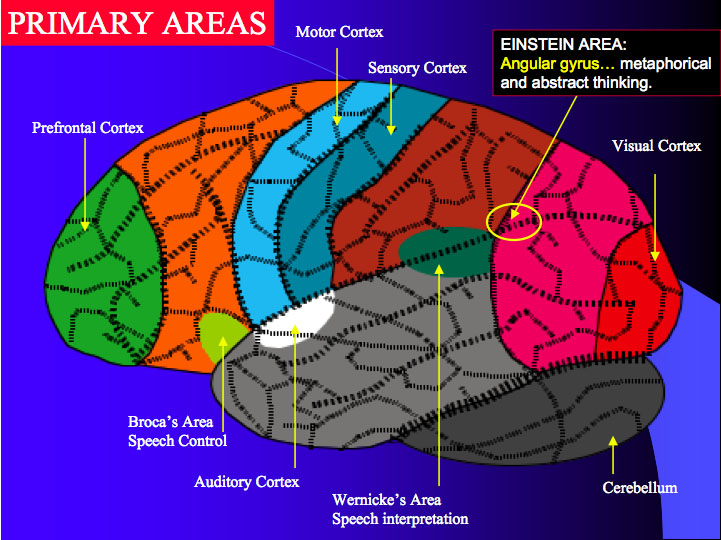Our brain is locked inside our dark skull without direct access to the world and yet, it tells us the story of our life.
According to Steven Pinker in his book The Blank Slate, extensive brain research tells us that our brain is made up of computational modules, which are information-processing systems that perform many functions of which we are unconscious. Our brain can filter out distractions, learn skills, control body movement and temperature, remember facts and act on rules and information. Beyond all this, the unique multiple intelligences of each individual transforms all these things by the use of language, number, space, tools, and living things.
David Eagleman, the neuroscientist says in his book, The Brain: The Story of You, "I think of consciousness as the CEO of a large sprawling corporation, with many thousands of subdivisions and departments all collaborating and interacting and competing in different ways."
Added into this mix, is the fact that the prefrontal cortex of our brain, which is necessary for long-term thinking, abstract reasoning, overriding impulses like greed and decision making, does not develop fully until we reach our early twenties. So while a young child is more likely to act simply on impulse, as we get older, the prefrontal cortex is more likely to engage in a battle against temptations like eating chocolate cake, because while it may be very gratifying to eat the cake now, eating it will likely undermine the weight loss we are trying to achieve in the long run.
Using the story of Ulysses and the sirens from Homer, Eagleman explains the idea that different parts of our brain compete and gain greater control at times. In this tale, Ulysses makes an agreement with his men to tie him to the mast of the boat, as he knows that when he hears the siren's song, its lure will be too strong and he will lose his resolve and the journey home maybe sabotaged.
Our brain, says Eagleman, is like a parliament, which has different political parties with different interests and so a battle ensues on how to steer the ship. But what makes us into a distinct person with a particular character, is our particular set of genes that we inherit, mixed with our experiences in the world.
Who we are from these genes and experiences can be changed, however, by changes in our brains caused by such things as strokes or brain tumours and other brain injuries. We are then, essentially, our brains and what we call our the complex and adaptive system of our mind, emerges from the ordinary matter of the brain.
Brains are essentially energy processors which support consciousness and while our brain is only 2% of body mass, it accounts for 20% of the body's energy usage. What we call consciousness, it seems, may depend on complex neural energy flow feedback loops, which can be interrupted by such substances as anaesthetics. Anaesthetics, like propofol, seem to inhibit the brain’s ability to sustain complex feedback loops in parts of the brain and when it wears off, it can feel like you are coming back online.
To maintain consciousness, we must ensure the function of what biologist Gerald Edelman called “reentrant” signals, which are an ongoing bidirectional exchange of signals along reciprocal axonal fibers. These feedback loops of neural activity connect all our brain regions into a coherent functioning whole. Us.
Who we are from these genes and experiences can be changed, however, by changes in our brains caused by such things as strokes or brain tumours and other brain injuries. We are then, essentially, our brains and what we call our the complex and adaptive system of our mind, emerges from the ordinary matter of the brain.
Brains are essentially energy processors which support consciousness and while our brain is only 2% of body mass, it accounts for 20% of the body's energy usage. What we call consciousness, it seems, may depend on complex neural energy flow feedback loops, which can be interrupted by such substances as anaesthetics. Anaesthetics, like propofol, seem to inhibit the brain’s ability to sustain complex feedback loops in parts of the brain and when it wears off, it can feel like you are coming back online.
To maintain consciousness, we must ensure the function of what biologist Gerald Edelman called “reentrant” signals, which are an ongoing bidirectional exchange of signals along reciprocal axonal fibers. These feedback loops of neural activity connect all our brain regions into a coherent functioning whole. Us.



